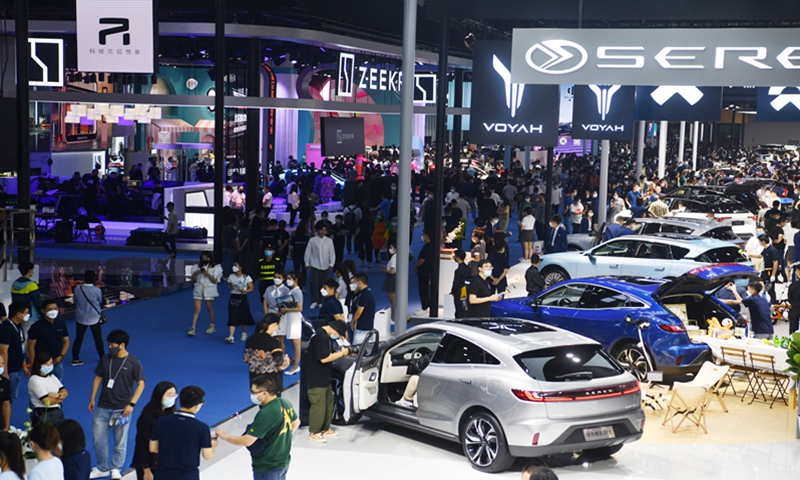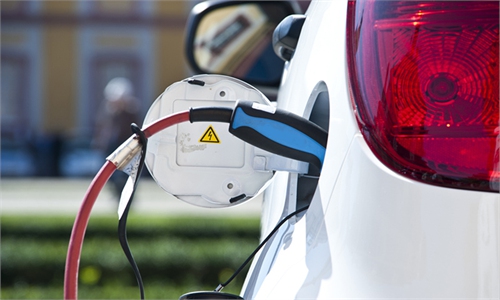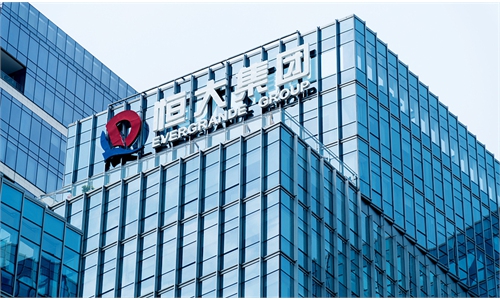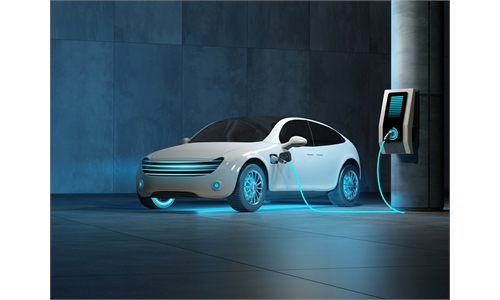
Chinese new-energy vehicle (NEV) makers display their latest models at the Chengdu Motor Show 2021 in Southwest China's Sichuan Province on Sunday. Data from the China Association of Automobile Manufacturers shows that from January to July, the production of NEVs reached 1.504 million units, with sales reaching 1.478 million. Photo: VCG
China's new-energy vehicle (NEV) sales continued to gain momentum in October with robust growth in both domestic sales and exports, even as sales of passenger cars posted a year-on-year decline during the month.
NEV retail sales reached 321,000 units in October, up 141 percent on a yearly basis, according to data released by the China Passenger Car Association (CPCA) on Monday. The retail penetration ratio was 14.3 percent in the first 10 months, a significant increase from 5.8 percent a year earlier.
For the January-October period, NEV retail sales totaled 2.14 million units, up 191.9 percent year-on-year.
The growing momentum of the NEV sector was in stark contrast to the downward trend of traditional cars fueled by internal combustion, said the CPCA, adding that the former has already achieved a replacement effect.
In October, retail sales of passenger cars in the country fell 14.1 percent year-on-year.
Cui Dongshu, secretary-general of the association, forecast that the market penetration ratio of NEVs could break through 20 percent in 2022.
The supply of NEVs has increased, as start-ups and traditional car companies have recently launched competitive pure electric cars. With the continuous rise of production capacity, they have effectively met the needs of customers for a new car experience and promoted market demand, Cui said.
The CPCA has increased its estimate of NEV sales in China to 2.4 million this year.
In terms of brands, Shenzhen-based BYD maintained its No.1 ranking with 80,373 units sold in October, the fifth record in a row, after 70,022 units in September.
US electric vehicle giant Tesla came in second with 54,391 units sold last month.
Apart from domestic sales, China's NEV exports posted explosive growth in October. Tesla shipped 40,666 Chinese-made vehicles to overseas markets, while state-owned SAIC exported 6,659 and BYD sold 1,026, according to the CPCA.
Chip shortages have been a headache for the global auto industry since last year, but the CPCA said "the darkest moment has passed."
The association previously forecast a 20-percent rise in auto chip supplies in October, but the number turned out to be 10 percent, indicating that there is still a lack of sufficient supplies.
"The lack of chips will also slightly affect the auto market next year. The low consumption period in February next year will become a buffer period, and the market will gradually turn to being demand-oriented," said the CPCA.
Global Times



